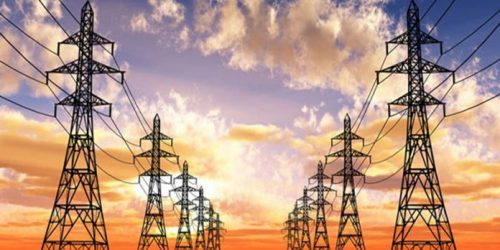August 17, 2020 (MLN): Prime Minister Imran Khan had disclosed that after negotiation with IPPs, they reached an understanding of reduction in the capacity payments, late payment surcharge (LPS), and sharing of savings on account of plant efficiencies while Government would make payment of outstanding receivables.
Government and Independent Power Producers (IPPs) signed a new Memorandum of Understanding (MoU) agreement to pave the way for a reduction in power generation cost and future circular debt.
In addition to this, the government and WPPs signed an MoU to increase the term of power plants by five years against certain relief in key items of the tariff.
It is pertinent to mention that both MoUs are subject to final approval from NEPRA, the Federal Cabinet, and IPP boards.
Some analysts labeled that it is the most material achievement of this incumbent government.
The common points under both MOUs, as per IGI securities include; reduction in ROEs, the establishment of a Competitive Trading Agreement and payment of overdue receivables to the IPPs within an agreed period of time through a mechanism to be devised by power purchaser and government.
Under 2002 Power Policy, the MoU has proposed changes in the Power Purchase Agreements (PPA) which include namely;
a) sharing of fuel efficiency gains with power purchaser,
b) sharing of O&M gains with power purchaser,
c) reduction in the rate charged on Delayed Payments for the first 60 days after the due date,
d) USD/PKR indexation for the purpose of Return on Equity (ROE) being capped at USD 148,
e) all projects to be converted to “take and pay basis” from current “take or pay” basis after successful implementation of the competitive trading agreement and,
e) establishment and implementation of the Competitive Trading Agreement.
With regards to the impact on power sector under the 2002 Power Policy, the MoU has made some notable changes in the PPA which would have a negative effect on IPPs such as Nishat Power Limited (NPL), Nishat Chunian Power Limited (NCPL), HUBC’s Narowal plant and Engro Powergen Qadirpur (EPQL), on an account of the removal of USD indexation from ROE (return of Equity ) which was the main attraction of the sector.
While the BIPL securities highlighted that the upward revision of the ROE component will contain the reduction in USD indexation. As a result of the removal of USD indexation, earnings will contract in the upcoming years.
According to Ismail Iqbal research, 1994 power policy based IPPs will emerge as key gainers from this MoU if these conceptual discussions reach the “implementation” phase and approved by key stakeholders of both parties. The research report highlighted that materialization of this scenario would be the best case for IPPs if they get timely payments with the majority having more than a year of receivable to the minimum.
Under the 1994 policy, one of the key conditions of the MoU stated that IPPs will have an 11% cut in capacity and variable O&M tariffs but they would retain exchange rate and US CPI adjustments on 50% of reduced revenues.
The research report by Ismail Iqbal underscored that ROE of IPPs for FY21-27 under the 1994 policy would reduce by 11-12% while the same for 2002 based policy would reduce by 21%.
However, according to the notification issued by HUBC to PSX, the base plant of HUBC is not under any policy, therefore amendments in the 1994 policy will not apply to the Hub base plant. Due to HUBC’s unique U shape PCE (project Company Equity), market analysts expect that it would limit the overall downside risk to any reduction in capacity payments and capped indexation. While, plants falling under the 1994 policy such as Lalpir Power Limited (LPL), Pakgen Power Limited (PKGP), and Kohinoor Energy Limited (KOHE) will likely face ROE contraction whereas receipt of overdue payments will be positive for cash flows.
The report by Ismail Iqbal securities has framed a scenario, based on underlying MoU principles and the following assumptions:
•All of the outstanding receivables of the sector are cleared by FY22
•Implementation of “Take-and-pay” in 2023 where efficient/gas-based IPPs maintain their position in merit order until 2-4 years
•No earnings contribution of fuel / O&M savings
According to news reports, IPPs formed under the 2015 policy may see a change in their debt tenure from 10yrs to 25yrs. This would help reduce the power tariff. Since many CPEC projects fall under the 2015 policy it remains to be seen whether China would agree to a fixed dollar rate. If this change is accepted it would impact HUBC, ENGRO, and LUCK power projects, mentioned BIPL securities.





